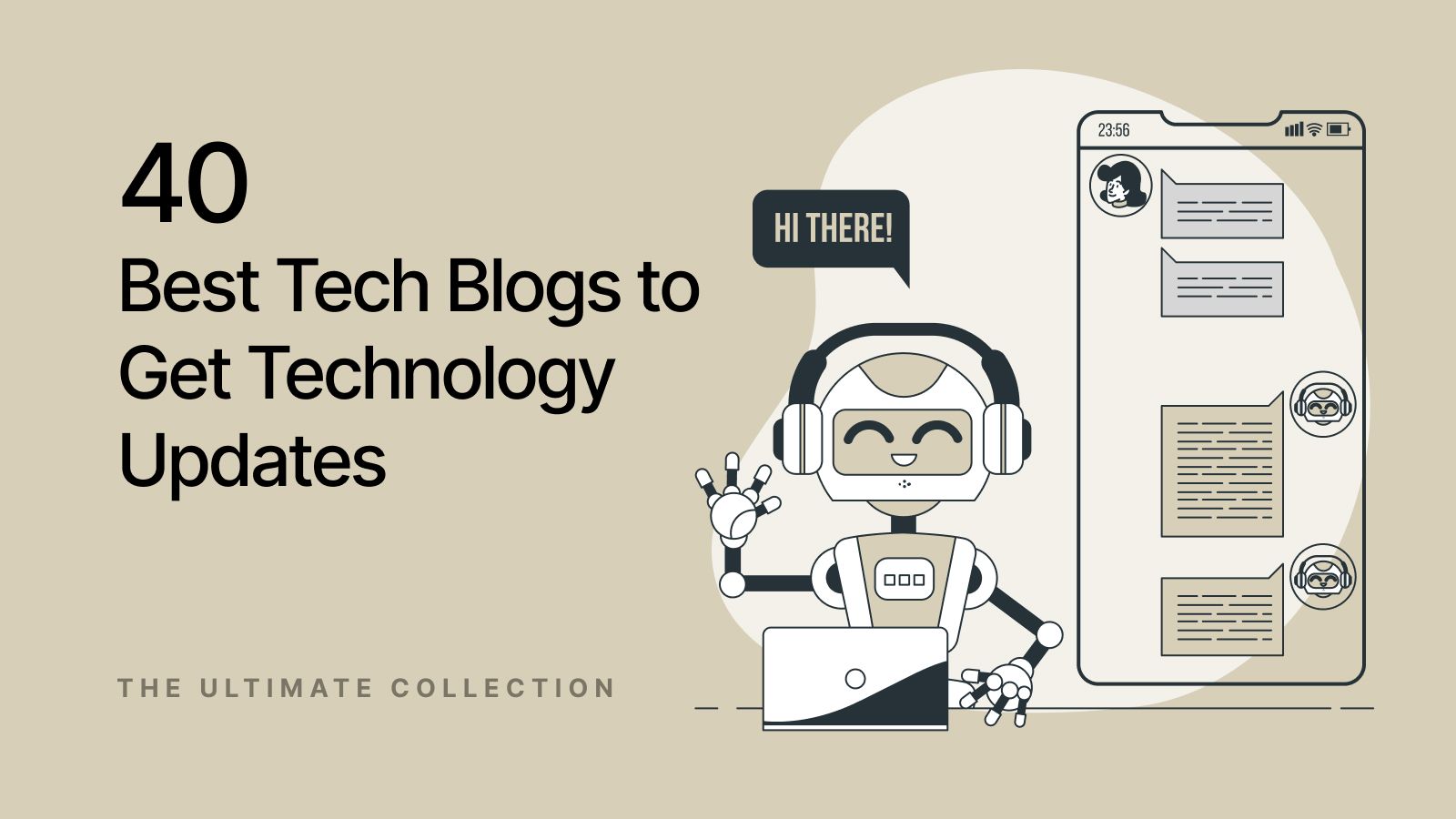Exactly How Blockchain Innovation Is Revolutionizing Data Safety And Security
Blockchain technology is fundamentally altering the landscape of information protection by introducing a decentralized structure that guarantees boosted openness and strength. Unlike conventional systems, which depend on centralized data databases, blockchain distributes data throughout a network, reducing susceptabilities and solitary factors of failure. Using sophisticated cryptographic strategies makes sure that data stays tamper-proof, promoting count on among customers and stakeholders. As industries quickly adjust to this innovation, concerns emerge regarding its broader influence and potential obstacles. What implications does this shift hold for future data security strategies and regulatory structures? The responses might shock you (Best tech blog).
The Essentials of Blockchain
Blockchain innovation, a revolutionary concept in electronic information monitoring, essentially transforms just how info is saved and safeguarded. At its core, a blockchain is a dispersed ledger that tapes deals throughout a network of computers, guaranteeing transparency and immutability. The technology operates a chain of blocks, each including a checklist of transactions. As soon as a block is filled, it is time-stamped and linked to the previous block, producing a chronological chain.
Secret to recognizing blockchain is the hashing process, which secures deal information right into a special alphanumeric code. This cryptographic feature makes sure that any type of modification in the transaction data causes a totally various hash, thereby guarding versus meddling. The consensus device, an additional critical part, confirms and confirms brand-new transactions via a network of nodes, thereby eliminating the requirement for a central authority.
Furthermore, blockchain's append-only framework guarantees that information, as soon as included, can not be deleted or changed. This characteristic warranties a proven and permanent record of purchases, promoting depend on amongst participants. Consequently, blockchain offers a robust structure for data honesty, offering industries a trustworthy approach for monitoring and managing electronic information in a safe, transparent manner.
Decentralization and Safety
Decentralization, a core principle of blockchain technology, dramatically improves information safety and security by distributing control across a network as opposed to counting on a singular, central entity. This distribution mitigates the risk of single factors of failing, which are prevalent in standard central systems. By distributing information across many nodes, blockchain makes certain that even if one node is compromised, the entire network stays safe and secure. This redundancy not only strengthens the honesty of the information however additionally enhances its resilience to cyberattacks and system failings.

Each individual in the network has access to the entire blockchain, enabling them to confirm and examine purchases independently. Generally, decentralization is instrumental in enhancing information safety in blockchain networks.

Cryptographic Methods
At the heart of blockchain modern technology, cryptographic techniques play a crucial role in guarding data, ensuring both privacy and stability. These methods are foundational to the blockchain's capability to safely record deals in a decentralized way. Cryptography in blockchain uses a combination of symmetrical and uneven formulas to secure information, making it easily accessible only to authorized parties - Best tech blog. Public and exclusive essential pairs are central to this process, permitting for secure verification and identity confirmation without disclosing delicate details.
Hash features are an additional vital component, changing input information into a fixed-size string of personalities, successfully creating a distinct electronic fingerprint for each and every block. This makes certain that any effort to alter the information will certainly cause an entirely different hash, therefore keeping the immutability of the blockchain. Digital trademarks verify the authenticity and integrity of purchases, supplying a layer of non-repudiation.
The decentralized nature of blockchain, integrated with durable cryptographic methods, eliminates the requirement for intermediaries, decreasing potential susceptabilities. As blockchain modern technology develops, improvements in cryptography such as zero-knowledge evidence and homomorphic file encryption proceed to improve protection steps, even more strengthening data protection in this advanced electronic ledger system.
Use Situations Throughout Industries

In the healthcare market, blockchain ensures the safe and secure storage special info space and sharing of person records, promoting interoperability while securing delicate data from unauthorized accessibility. This technology empowers individuals with control over their case history and promotes smooth control amongst healthcare service providers.
Supply chain management benefits dramatically from blockchain's unalterable ledger, which guarantees traceability and authenticity of items from beginning to customer. By improving openness, blockchain assists reduce concerns such as counterfeiting and underhanded sourcing.
Additionally, blockchain's decentralized nature this website is reshaping the energy industry by allowing peer-to-peer energy trading, where customers can deal excess renewable resource directly. This cultivates an extra lasting and reliable power environment.
In the realm of intellectual property, blockchain offers a tamper-proof system for creators to sign up and shield their works, guaranteeing rightful attribution and fair compensation. These diverse usage cases highlight blockchain's function as a pivotal pressure in redefining information security across sectors.
Future of Information Defense
As we aim to the future of data security, blockchain technology is poised to play a crucial duty in guarding digital details. With its decentralized and unalterable characteristics, blockchain uses a robust structure for safeguarding sensitive data versus unapproved accessibility and cyber dangers. This modern technology guarantees that once information is recorded, it browse around here is nearly impossible to modify without discovery, thus supplying a considerable advantage over traditional information storage methods.
The assimilation of blockchain with other sophisticated technologies, such as expert system and the Net of Points (IoT), is expected to boost information security methods even more. By leveraging clever agreements, companies can impose and automate safety methods, reducing human error and raising efficiency. Additionally, blockchain's ability to supply clear and traceable deals will certainly bolster depend on and responsibility in data management practices.
As governing landscapes advance, blockchain's compliance-friendly nature will certainly come to be significantly pertinent. It can help companies satisfy rigid data security regulations, such as the General Information Protection Policy (GDPR) and the California Customer Personal Privacy Act (CCPA), by supplying verifiable records of information handling tasks. Inevitably, blockchain's special attributes placement it as a transformative device in the recurring quest to protect the digital world versus ever-evolving cyber hazards.
Verdict
Blockchain technology stands for a paradigm change in information safety and security by leveraging decentralization and cryptographic strategies to improve openness, trust, and information honesty. Its capacity to remove single factors of failing and employ consensus devices considerably reduces the threat of fraudulence and cyberattacks. This cutting-edge framework not only encourages customers with better control over their data yet additionally aligns with regulative compliance. As cyber dangers evolve, blockchain emerges as a vital device for durable information protection across different markets.
Blockchain innovation is essentially changing the landscape of data safety by introducing a decentralized framework that assures boosted openness and resilience. Unlike conventional systems, which rely on centralized information databases, blockchain disperses information across a network, lessening vulnerabilities and solitary points of failure.Decentralization, a core concept of blockchain technology, dramatically boosts information protection by dispersing control across a network instead than counting on a single, central entity.At the heart of blockchain technology, cryptographic techniques play a crucial role in protecting data, making sure both confidentiality and integrity.Blockchain modern technology represents a standard change in data safety by leveraging decentralization and cryptographic methods to improve transparency, trust fund, and information stability.